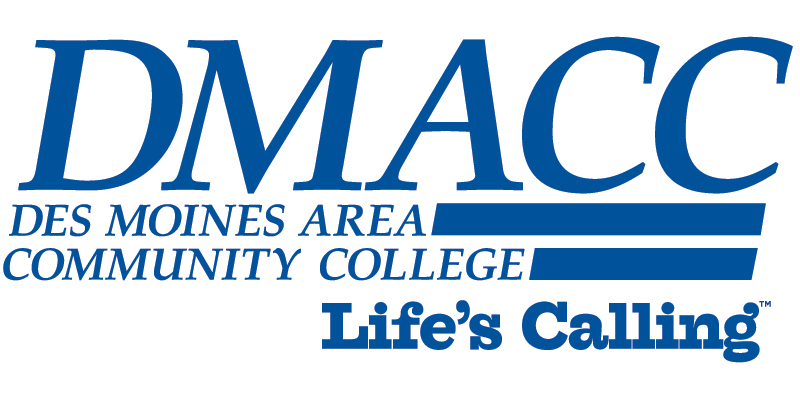Skill Exploration in Carroll County

1 Oct 2021
News
For years, U.S. companies have lamented the difficulties in finding qualified employees to fill their positions. The COVID-19 pandemic worsened that situation. According to the Bureau of Labor Statistics, 9.5 million Americans were unemployed in June and looking for work, with an equal number of job openings across the country. There are a number of contributing reasons, but it is clear a significant factor is individuals without the skills required for those open positions.
High schools across the country have sought to address this disparity for years. Students attending Carroll High School, in Carroll, Iowa, have access to diverse and vibrant selections to develop those skills for many different, high demand career options after graduation.
“We have embedded a number of programs and class offerings amidst their high school coursework to give students the opportunity to explore many career paths,” said principal Tammie McKenzie.
The school has a Career and Technical Education program interwoven among its course offerings which emphasizes a number of segments, from skilled trades careers, to agriculture, hospitality and marketing.
“If a student has passion for a specific career, there are many avenues for them here to investigate,” said Becky Boes, an English teacher at Carroll High School and former board member of the Carroll Area Development Corporation.
Skilled Trades
Introductions to the skilled trades are a significant portion of the CTE program. Courses include advanced CAD, construction, home maintenance, welding and electrical technology. Introducing skilled trades to high school students is extremely important, because they often have a negative connotation for those embarking on their career decision-making. Yet, in an era of skyrocketing costs of four-year postsecondary education, skilled trades careers offer students reasonable financial options. The Bureau of Labor Statistics reported the 2020 median annual pay for electricians exceeded $55,000, while teachers expect about $62,000, graphic designers are at $53,380 and reporters are under $50,000. The skilled trade careers come without the price tag associated with the postsecondary education needed for those other careers as well.
Agriculture
Another emphasis is agriculture education. Carroll works with two other school districts to provide supervised agricultural experiences for students to gain a perspective of careers on the farm. Courses include agricultural business, crop production and basic animal science.
Hospitality
Carroll has the typical collection of classes in Family and Consumer Science, but their students have been able to expand their activities to real life experiences. During the COVID-19 pandemic, students in Foods 1 and Foods 2 ran a restaurant out of the high school, supplying take home meals for more than two months. The process involved the ability to achieve their ServSafe certifications necessary throughout the hospitality industries.
Marketing & Public Relations
The Carroll Community is fortunate to have access to Tiger Vision, an advertising agency run by students out of the high school that employs students to help spread the great news about the school district to area stakeholders. The program is run through a Digital Media Production and Design Course.
“Students run advertising on scoreboards, school merchandising and manage the social media accounts,” said Boes. “Their work is as professional as any area institutions.”
Financial Literacy
High school graduates often leave their formative years without much introduction to “real world” skills. “U in Real Life '' is a course designed to give students that start on controlling their financial future in terms of savings, investments, credit and debt, consumer awareness, credit reports and scores, personal spending plans, insurance, loans, taxes and charitable giving.
Dual Credit Options
 Carroll students are able to work with the nearby Des Moines Area Community College (DMACC) in earning college credits with more than 40 classes that qualify for dual credit status, in addition to classes at the DMACC Carroll campus.
Carroll students are able to work with the nearby Des Moines Area Community College (DMACC) in earning college credits with more than 40 classes that qualify for dual credit status, in addition to classes at the DMACC Carroll campus.
“Students who want to work hard and start their college education can get ahead here,” said Boes.
One method for manufacturers to gain the attention of high school students is to provide hands-on experience in various industrial sectors. The DMACC Career Work Experience Program allows high school seniors to spend three classroom hours per week with 10 hours of week, for a total of 150, in the workforce. DMACC works with area businesses to coordinate year-long paid experiences or semester-long, unpaid internships.
Community Involvement
Boes said community businesses have been consistently involved with the CTE programming at the high school through a CTE Advisory Board. Officials regularly meet with teachers to discuss employment trends and needs.
“In 20 years, I cannot think of one business that did not want to work with us,” said Boes. “They understand the community cannot thrive without the energy and talents of the next generations to stay and help everyone grow.”
Boes pointed to several local employers and organizations who have regularly participated, such as New Hope Village, Pella Windows, Pizza Ranch, United Bank of Iowa, the Carroll County Chamber of Commerce, Iowa Works and New Opportunities.
The continued development of the programming available at the high school must match what students want with what businesses need, said Boes.
“We want students to find their passion and be successful with whatever that is, while taking advantage of local opportunities,” she said. “That is the whole purpose of education.”
More Topics




